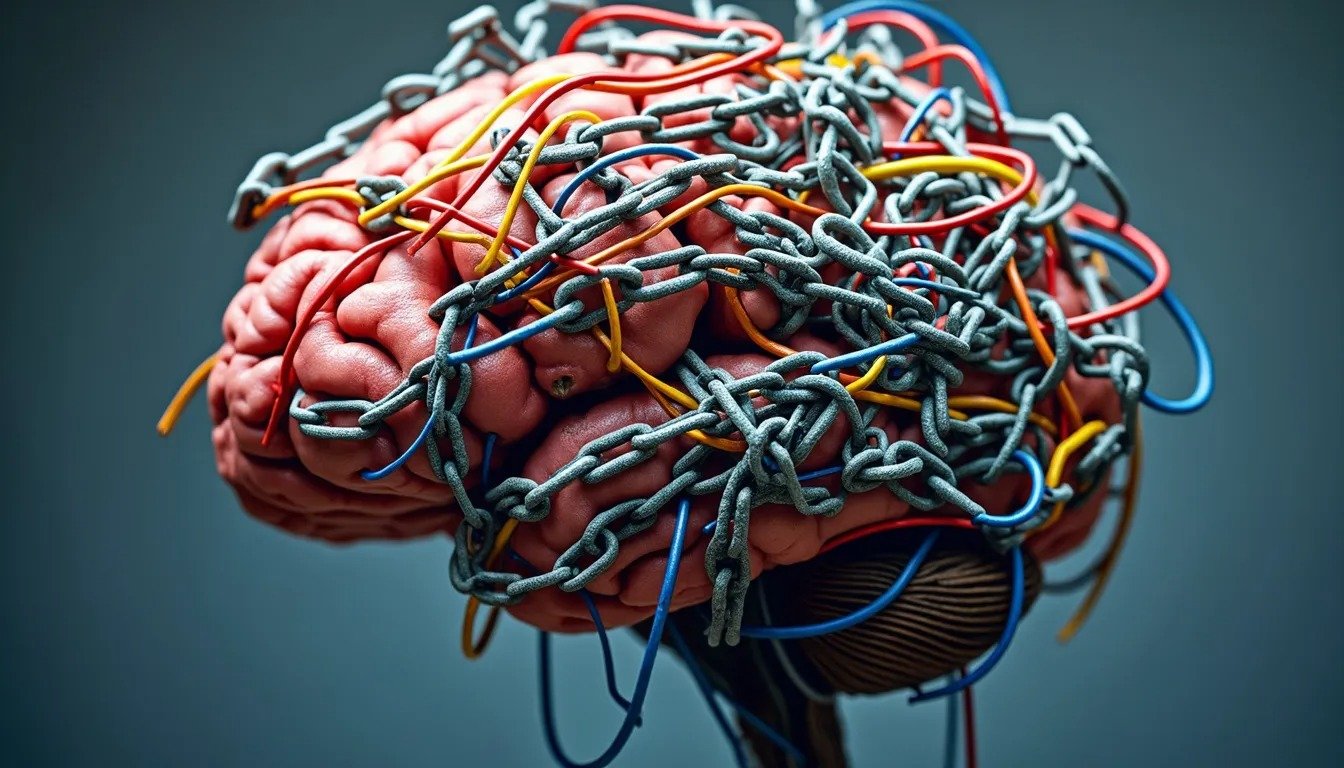Coping with ADHD and Grief: Unique Challenges and Solutions
Living with ADHD can be challenging, and when you're faced with grief, it can feel overwhelming. The intersection of ADHD and grief presents unique hurdles that can affect your emotional health and overall well-being. You might find it harder to process your feelings or stay focused on daily tasks while coping with loss. Understanding how ADHD influences your grieving process is crucial to finding effective ways to manage your mental health during this difficult time.
In this article, we'll explore the complex relationship between ADHD and grief, offering insights to help you navigate this challenging journey. You'll discover strategies to deal with grief while managing ADHD symptoms, learn about building a strong support system, and gain valuable tips from mental health professionals. Whether you're dealing with a recent loss or supporting someone who is, this guide aims to provide you with the tools and understanding you need to cope with grief while living with ADHD.
Understanding the Intersection of ADHD and Grief
A human brain wrapped in chains and colorful wires, illustrating the tangled and overwhelming experience of coping with ADHD and grief.
When you're dealing with ADHD and grief simultaneously, you face a unique set of challenges that can significantly impact your emotional health and daily functioning. Grief is a complex and deeply personal experience that affects individuals in various ways, often accompanied by intense emotions, confusion, and a sense of overwhelming loss. For those living with Attention Deficit Hyperactivity Disorder (ADHD), this experience can be even more challenging due to the specific characteristics of the disorder.
Emotional Intensity in ADHD
One of the key aspects of ADHD is the tendency to experience emotions more intensely. When you're grieving, this emotional intensity can become overwhelming. You might find that your feelings are amplified, making it difficult to manage the already challenging process of grief. This heightened emotional state can lead to unpredictable reactions that may seem inappropriate to others. Some individuals turn inward, while others may act out, creating a delicate balance for those supporting you through your grief.
Overlapping Symptoms
It's crucial to recognize that many symptoms of grief overlap with those of ADHD, which can make it challenging to distinguish between the two. Some common experiences you might encounter include:
Trouble focusing and low attention spans
Constant need to move your body
Distancing from peers or interests
Poor performance at school or work
Difficulty learning new material
These overlapping symptoms can exacerbate your existing ADHD challenges, making it harder to cope with loss. You might notice that your ability to concentrate on simple tasks diminishes, or you find yourself making more careless mistakes than usual.
Challenges in Processing Loss
Processing loss with ADHD presents unique hurdles:
Difficulty focusing: You may find it hard to concentrate on your feelings or engage fully in the grieving process because your mind frequently wanders.
Impulsivity: Your tendency towards impulsive behavior can lead to hasty decisions during the grieving process, potentially hindering your healing journey.
Inconsistent coping mechanisms: Maintaining consistent coping strategies might be a struggle, making it challenging to navigate the ups and downs of grief.
Misdirected hyper-focus: The ADHD phenomenon known as hyper-focus can become problematic when dealing with sad emotions. While it's normal to feel sadness and anger, be cautious of a growing sense of depression and desperation.
Isolation: You might experience a pronounced feeling of desolation with the loss of someone or something close to you. The absence of a key figure in your life can leave you feeling fearful, lonely, and hopeless.
Understanding these unique challenges is the first step in developing effective strategies to cope with grief while managing your ADHD. Remember, it's okay to seek help and support during this difficult time. Mental health professionals can provide valuable guidance tailored to your specific needs, helping you navigate the complex intersection of ADHD and grief.
Navigating the Grieving Process with ADHD
A child in a maze, holding a clock, surrounded by obstacles, representing the complexity and confusion of navigating grief with ADHD.
When you're dealing with ADHD and grief simultaneously, you face unique challenges that can significantly impact your emotional health and daily functioning. Grief is a complex and deeply personal experience that affects individuals in various ways, often accompanied by intense emotions, confusion, and a sense of overwhelming loss. For those living with ADHD, this experience can be even more challenging due to the specific characteristics of the disorder.
Acknowledging Emotions
Processing emotions is a complex task, and as someone with ADHD, you may face additional challenges in this area. ADHD can impact the regulation and expression of emotions, making it harder for you to navigate the grieving process. You might experience emotions more intensely, leading to unpredictable reactions that may seem inappropriate to others. Some individuals turn inward, while others may act out.
Developing Coping Strategies
To help you navigate the grieving process with ADHD, consider the following strategies:
Create a structured grieving routine: Establish a daily routine that includes regular times for reflection, self-care activities, and engagement with support networks. This can provide a sense of stability and predictability during the grieving process.
Utilize visual aids and reminders: Use calendars, to-do lists, and reminders on electronic devices to help you remember important grieving tasks and activities. These visual cues can help you stay focused and engaged in your grief journey.
Practice mindfulness and grounding techniques: Engage in breathing exercises, meditation, or other mindfulness practices to help regulate your emotions and create a sense of calm during the grieving process.
Break tasks into smaller, manageable steps: Set small goals and celebrate each accomplishment to maintain momentum and make progress in your healing journey.
Engage in physical activity: Regular exercise can help reduce hyperactivity, improve focus, and release endorphins that promote emotional well-being. Activities such as walking, yoga, or dancing can be particularly beneficial.
Seeking Professional Support
Professional support is essential when managing grief with ADHD. Consider the following options:
Cognitive-behavioral therapy (CBT): This approach can help you identify and challenge negative thought patterns and behaviors related to grief. It can provide practical strategies for managing emotions, improving focus, and developing healthy coping mechanisms.
Grief counseling: A grief counselor can provide a safe and supportive space for you to explore your emotions, develop coping strategies, and find ways to honor your loved ones.
Support groups: Joining a support group can connect you with others who have had similar experiences, offering understanding and empathy. Sharing stories and strategies can foster a sense of belonging and validation.
Remember, it's okay to ask for help. Reach out to your family, a counselor or coach, your minister, or someone you trust to listen and help you take a proactive approach to overcoming your grief. Some coaches and therapists specialize in issues like ADHD and grief recovery, and they can teach you step-by-step methods for moving beyond your grief.
By acknowledging your emotions, developing effective coping strategies, and seeking professional support, you can navigate the grieving process with ADHD more effectively. While ADHD can amplify the negative emotions around grief and loss, with the right support and by allowing yourself to go through the grieving process, you can recover, rebuild your life, and become stronger.
Building a Support System
A diverse group of people gathering around a woman holding a book, symbolizing a support network for managing ADHD and grief.
Importance of Connection
When you're dealing with ADHD and grief, connecting with others can be a crucial part of your healing journey. Sharing your experiences and stories with people who understand what you're going through can offer invaluable support and comfort. This connection helps normalize your grief experience and provides a supportive environment to work through your emotions.
Remember, while grief affects everyone differently, reaching out to others can significantly help with the grieving process. Whether it's family, friends, or support groups, allowing yourself to be vulnerable and seek help can pave the way toward healing.
Finding ADHD-Friendly Support Groups
Online support groups can be particularly beneficial for those with ADHD who are grieving. These groups offer a safe, supportive space to learn coping skills and find community. They can take various forms, including:
Forums
Message boards
Live chat sessions
Facebook groups
In-person gatherings and events
Many of these groups focus on specific types of loss, which can encourage a deeper connection with others who have similar experiences. If you value privacy, closed online groups offer more anonymity than in-person meetings.
One structured option is GriefShare, a 13-week support group that provides guidance and tips to help you find relief, comfort, and peace of mind. This group setting can be crucial for healing, as it allows people to walk alongside you on your grief journey.
Communicating Needs to Loved Ones
When building your support system, it's crucial to effectively communicate your needs to loved ones. Here are some strategies to help you:
Use a soft start when discussing your needs. For example, say, "I really miss you. We aren't spending enough time together these days," instead of "You never pay attention to me!"
Be respectful in your communication, even when discussing difficult topics.
Use clarifying phrases like, "If I understand correctly, we both think..." to ensure you're on the same page.
Ask open-ended questions to invite your loved ones into the conversation.
Accept the legitimacy of negative emotions. If your partner is also grieving, commiserate with them instead of trying to move on quickly.
By building a strong support system and effectively communicating your needs, you can navigate the challenging journey of grief with ADHD more successfully.
Embrace Your Journey with PKJcoach
Navigating the complexities of ADHD and grief requires understanding, patience, and the right support. At PKJcoach, we are dedicated to guiding you through these challenging times with personalized coaching sessions tailored to your unique needs. Take the first step towards healing by booking your free 30-minute session today, and join our community by subscribing to our free journals. Let us help you transform your grief into growth and resilience. Book Your Free Session Now!
Conclusion
Navigating the complex interplay between ADHD and grief presents unique challenges, but with the right strategies and support, it's possible to find healing and growth. Understanding how ADHD influences the grieving process allows individuals to develop tailored coping mechanisms, such as creating structured routines, using visual aids, and engaging in mindfulness practices. Building a strong support system, whether through support groups, professional counseling, or open communication with loved ones, plays a crucial role in managing grief while living with ADHD.
Remember that everyone's journey through grief is personal, and it's okay to seek help when needed. By acknowledging your emotions, developing effective coping strategies, and leaning on your support network, you can navigate this challenging time with resilience and hope. To further support your healing journey, consider booking a session with a mental health professional who specializes in ADHD and grief. BOOK YOUR SESSION TODAY!
FAQs
1. How do individuals with ADHD process grief?
While there is limited research specifically on grief among neurodivergent populations, including those with ADHD, it's generally observed that people with ADHD may feel emotions more intensely. They often find it challenging to move past strong emotions and may struggle to accept advice or support during times of distress.
2. What are some common challenges faced by individuals with ADHD in daily life?
People with ADHD, particularly when undiagnosed, may find routine tasks difficult. These can include waking up, preparing to leave for work, arriving on time, and maintaining productivity throughout the workday. Such challenges can lead to broader issues in academic, professional, and personal relationships.
3. What are the "three C's" of grief?
The "three C's" of grief are a framework to help manage your bereavement process. They include:
Choose: Make decisions that are best for you, recognizing that you still have choices even in grief.
Connect: Reach out and maintain connections with others, which can provide emotional support.
Communicate: Express your feelings and thoughts to help manage your grief.
4. What are some effective coping strategies for dealing with grief?
Here are several strategies that might ease the grieving process:
Participate in rituals: Engaging in memorial services and funerals can provide a sense of community and closure.
Accept your emotions: Allow yourself to experience your feelings fully, such as crying when needed.
Talk about your loss: When possible, discuss your feelings and memories with others.
Preserve memories: Keep the memory of your loved one alive through photos, keepsakes, or shared stories.
Seek support: Don’t hesitate to get help, whether through friends, family, or professional counseling.




